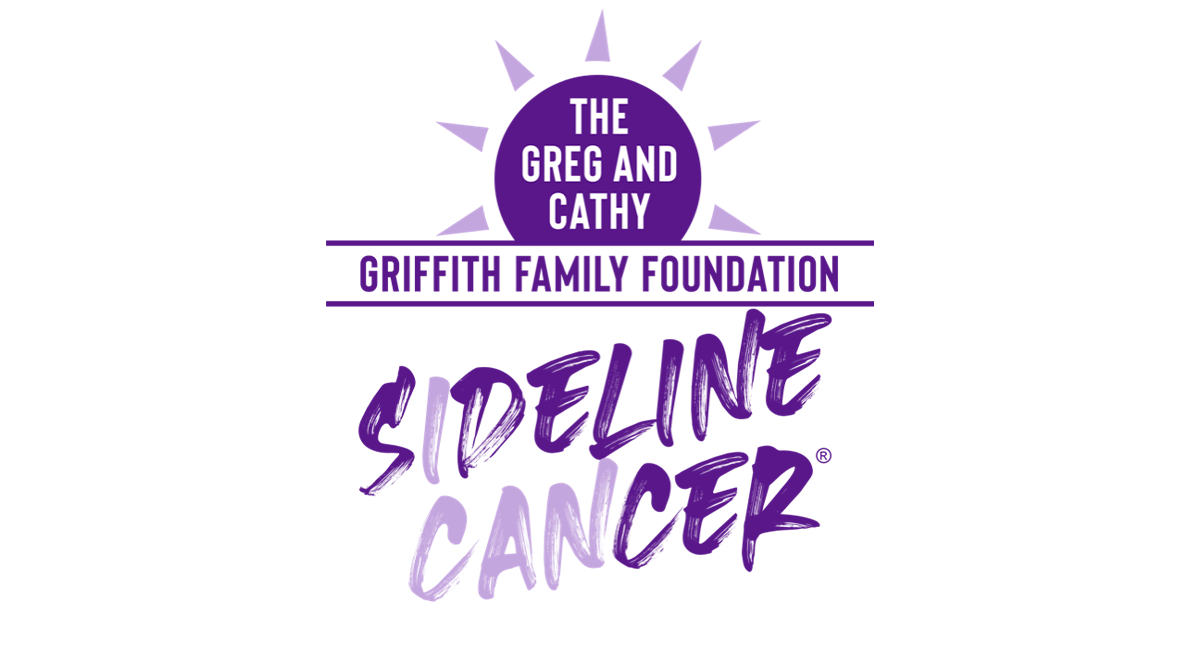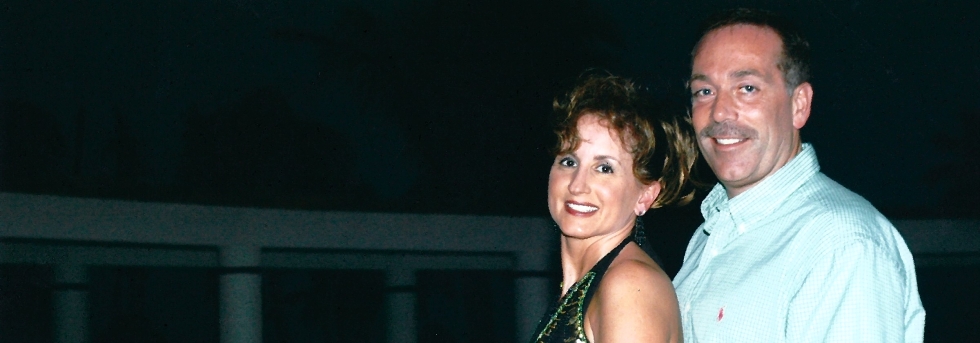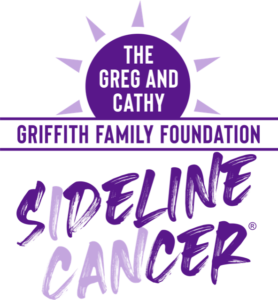It’s our desire that this website be a place for all those affected by pancreatic cancer to have their questions answered and receive support from those who’ve gone through similar situations. We believe, with this goal in mind, that this site is the first of its kind. We hope that the Griffith’s experience, as told by Cathy Griffith, will be the beginning of fulfilling that mission.
On Saturday, January 30th, Greg played two hours of basketball. He was the high scorer in the game and felt great throughout. At four o’clock that afternoon, we went to church, and I noticed that Greg looked a little yellow. Afterwards, we went to dinner. Greg said he wasn’t hungry.
 We both assumed that he had some kind of a virus, and that he would feel better by Monday. But Monday came around and Greg didn’t feel any better. We went to the doctor, where they ordered blood work. The results of the tests showed an elevated bilirubin, so on Thursday Greg was sent to the hospital for further testing. On Friday, February 5th, Greg was diagnosed with stage 4 pancreatic cancer and a liver adenocarcinoma.
We both assumed that he had some kind of a virus, and that he would feel better by Monday. But Monday came around and Greg didn’t feel any better. We went to the doctor, where they ordered blood work. The results of the tests showed an elevated bilirubin, so on Thursday Greg was sent to the hospital for further testing. On Friday, February 5th, Greg was diagnosed with stage 4 pancreatic cancer and a liver adenocarcinoma.
At that moment, the question that hit us, and has hit thousands of others, is “Where do we go from here?” The following is a brief synopsis of how we handled this horrific attack upon Greg and our family.
Greg’s diagnosis was confirmed by three separate tests. A CT scan showed a mass on the pancreas, and a gastroenterologist performed an ERCP (endoscopic retrograde cholangiopancreatography). The ERCP is done endoscopically via the mouth to look for a mass, and the findings of the CT scan were confirmed. The doctor then ordered a PET scan, which is a full body scan that highlights areas where cancer cell activity is present. The stage 4 diagnosis was conclusive. The cancer had already spread to Greg’s liver. The doctor told us that he was sending us to see Dr. A. James Moser.
When we were home we began to process the entire situation. What would we do next? Where would we even start? The most important decision we made, and our source of strength over the next 19 months was this: we turned the situation over to God and asked Him to help us through this crisis. We pray that all those in similar situations will do the same.
On Saturday, February 6th, in the midst of a horrendous snow storm we joined 400 of our friends for a healing service at our church. Our priest laid hands on Greg and asked the Holy Spirit to heal him in the name of Jesus. Greg got up out of the pew and shared with the group. Among other things, he talked about a woman, who he believed to be an angel, touching him on the shoulder and telling him he was a “beautiful man” right after he had received the news about his diagnosis
This moment at the church was a turning point in Greg’s journey, after which we saw his confidence and strength renewed. That evening we returned home and began to talk with family and a few close friends about our “game plan,” how we would fight this disease medically, psychologically, holistically, and spiritually.
When we went to sleep that night, the voice of doubt, fear, and confusion began to creep into our minds. Greg, our sons Jordan and Jamie, and I could all sense that Satan was trying to plant these seeds to derail our trust in God. We all woke in the middle of the night and talked openly about this voice of doubt. Greg told us the fear is a “false expectation about reality,” that God was good and was in control. Once we addressed this voice of doubt, it began to go away and we were freed of fear.
On Monday we went to Pittsburgh and met with Dr. Moser, a gastroenterologist and an oncologist. After weighing the options, Greg and I decided that a clinical trial study was the best option for us and would give Greg the best shot. We asked our friends to be “chemo warriors,” taking turns going with Greg to his weekly chemotherapy infusions. Greg received the chemo treatment gemcitabine and not the newer trial chemo abraxane. We were disappointed that he didn’t get this new drug, but we trusted God with this.
Miraculously, the gemcitabine worked and Greg’s CA 19 tumor marker (an important blood marker that shows the progression or regression of cancer and is used to monitor patients who have already been diagnosed) and a PET scan showed that the cancer was diminishing.
By Easter Sunday 2010, things were looking better for Greg. We had incorporated several holistic approaches into Greg’s treatment, including herbs, supplements, and acutonics, the eastern practice of using tuning forks and sound waves, to reduce the effects of the chemo. He also saw a psychologist for weekly hypnosis sessions of what is called psycho oncology, where the psychologist would direct the mind to heal the body. Medically, we were fortunate to have a world renowned team of physicians in Pittsburgh who worked with us through this challenging and aggressive cancer. We did our best to attack the cancer on all fronts, but most importantly, we trusted that God can and does heal, and we left things in His hands.
I want everyone who comes to this website who has been affected by pancreatic cancer to know that they are never alone. Together we can make a difference in how people travel on this journey. My hope is that you or your loved one will not have to feel alone because the resources on this site are only one click away, and we want it to be a gathering place for all who are affected by pancreatic cancer.
As you can see by simply turning on the news, we live in a broken world. It’s God who gives us peace, even when things are falling apart around us. Faith cannot be fully explained. For us, it is the simple act of knowing and believing that God can cure pancreatic cancer and give us a peace that surpasses understanding. Please help us FUND a cure by donating to the Greg and Cathy Griffith Family Foundation!









